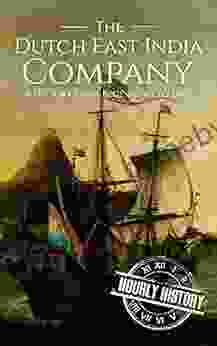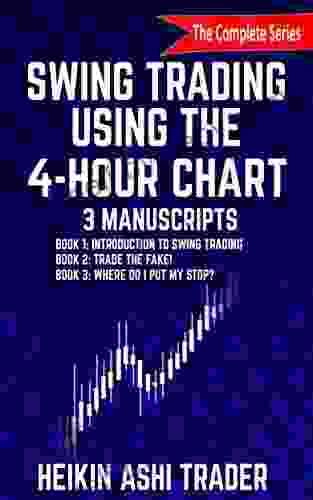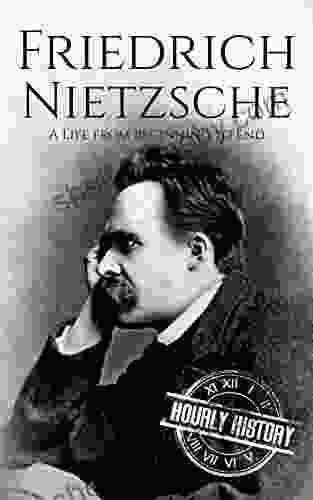Unveiling the Secrets of the Dutch East India Company: A Historical Exploration

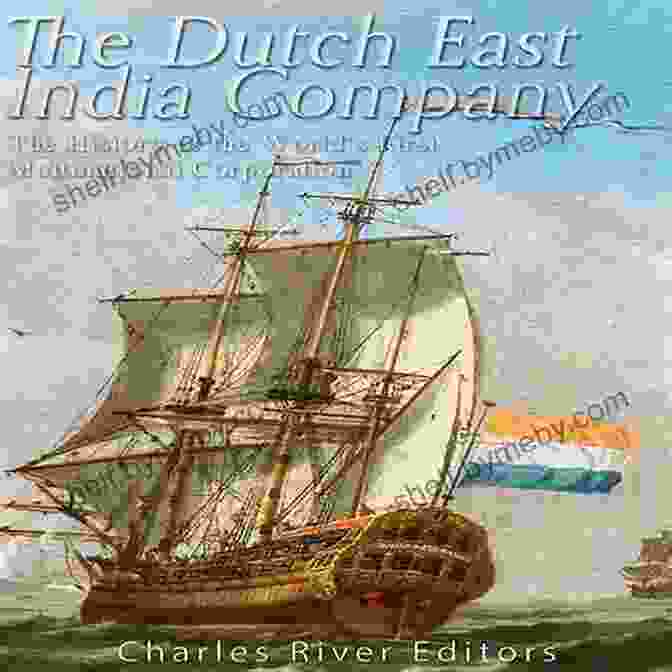
Prepare to embark on an extraordinary historical adventure as we venture into the captivating realm of the Dutch East India Company (VOC). For over two centuries, this enigmatic corporation held sway over vast territories in the East Indies, leaving an indelible mark on global commerce, colonization, and cultural exchange. Get ready to uncover the secrets of this powerful organization, its profound impact on the course of history, and the legacy it left behind.
4.2 out of 5
| Language | : | English |
| File size | : | 2109 KB |
| Text-to-Speech | : | Enabled |
| Screen Reader | : | Supported |
| Enhanced typesetting | : | Enabled |
| Word Wise | : | Enabled |
| Print length | : | 29 pages |
| Lending | : | Enabled |
The Birth of a Trading Empire
The Dutch East India Company was born in 1602, a product of the Dutch Republic's burgeoning maritime power and insatiable thirst for spices. This newly established company, armed with an exclusive charter granted by the Dutch government, set out to establish a monopoly over the lucrative spice trade in the East Indies, a region encompassing present-day Indonesia, Malaysia, and Singapore.
Driven by audacious ambition and an unwavering pursuit of profit, the VOC quickly expanded its reach across the vast expanse of the East Indies. Its ships sailed to distant shores, establishing trading posts and forging alliances with local rulers. By the mid-17th century, the VOC had emerged as the dominant force in the region, controlling a vast network of outposts and amassing an unparalleled fortune.
The Spice Trade and Colonial Expansion
The spice trade, particularly the acquisition of cloves, nutmeg, and pepper, formed the cornerstone of the VOC's commercial success. These aromatic treasures, highly prized in Europe for their culinary and medicinal properties, commanded exorbitant prices. The VOC's monopoly over the spice trade allowed it to reap enormous profits, fueling its expansion and solidifying its economic dominance.
Beyond the spice trade, the VOC also pursued territorial expansion, establishing colonies and military outposts throughout the East Indies. The company's presence in the region had a profound impact on local societies, introducing European goods, technologies, and cultural influences. However, VOC rule was often marked by violence and exploitation, as the company sought to maintain its control over the lucrative spice trade.
The VOC's Global Impact
The Dutch East India Company's influence extended far beyond the confines of the East Indies. Its commercial activities played a pivotal role in shaping global trade patterns, connecting East and West in unprecedented ways. The VOC introduced Asian spices, textiles, and porcelain to European markets, while exporting European goods to the East. This exchange of goods and ideas had a transformative impact on global culture and consumption.
Furthermore, the VOC's maritime prowess contributed to the development of shipbuilding and navigation techniques. Its vast fleet of ships, manned by skilled sailors, facilitated global exploration and the expansion of European empires. The company's activities also played a significant role in the rise of capitalism and the development of modern corporations.
The Decline and Fall of the VOC
Despite its immense power and wealth, the Dutch East India Company's fortunes gradually waned in the 18th century. The company faced increasing competition from rival European powers, particularly the British East India Company. Additionally, corruption, mismanagement, and rising costs took their toll on the VOC's profitability.
By the end of the 18th century, the Dutch East India Company was on the brink of collapse. The company's vast empire crumbled, and its once-mighty fleet was dispersed. In 1799, the VOC was officially dissolved, marking the end of an era of Dutch maritime dominance.
Legacy and Impact
The Dutch East India Company's legacy is complex and multifaceted. Its commercial achievements revolutionized global trade, while its colonial policies left an enduring impact on the East Indies. The company's history is a testament to the power and influence of corporations, the allure of wealth, and the complexities of globalization.
Today, the legacy of the Dutch East India Company can still be felt in the cultural and economic landscapes of the former East Indies. The company's architectural heritage, including forts and trading posts, stands as a reminder of its presence. Moreover, the VOC's influence on local economies and societies continues to shape the region's development.
The Dutch East India Company stands as a towering figure in the annals of history, a testament to human ambition, commercial prowess, and the transformative power of global exchange. Its story is a captivating tale of wealth, power, and the rise and fall of empires. As we delve into the depths of the VOC's history, we gain a deeper understanding of the interconnectedness of our world and the enduring impact of corporations on the course of human events.
Further Reading
- The VOC site
- The Dutch East India Company at the Rijksmuseum
- The Dutch East India Company on History.com
4.2 out of 5
| Language | : | English |
| File size | : | 2109 KB |
| Text-to-Speech | : | Enabled |
| Screen Reader | : | Supported |
| Enhanced typesetting | : | Enabled |
| Word Wise | : | Enabled |
| Print length | : | 29 pages |
| Lending | : | Enabled |
Do you want to contribute by writing guest posts on this blog?
Please contact us and send us a resume of previous articles that you have written.
 Book
Book Novel
Novel Page
Page Chapter
Chapter Text
Text Story
Story Genre
Genre Reader
Reader Library
Library Paperback
Paperback E-book
E-book Magazine
Magazine Newspaper
Newspaper Paragraph
Paragraph Sentence
Sentence Bookmark
Bookmark Shelf
Shelf Glossary
Glossary Bibliography
Bibliography Foreword
Foreword Preface
Preface Synopsis
Synopsis Annotation
Annotation Footnote
Footnote Manuscript
Manuscript Scroll
Scroll Codex
Codex Tome
Tome Bestseller
Bestseller Classics
Classics Library card
Library card Narrative
Narrative Biography
Biography Autobiography
Autobiography Memoir
Memoir Reference
Reference Encyclopedia
Encyclopedia Ingo Berensmeyer
Ingo Berensmeyer Imogen Reed
Imogen Reed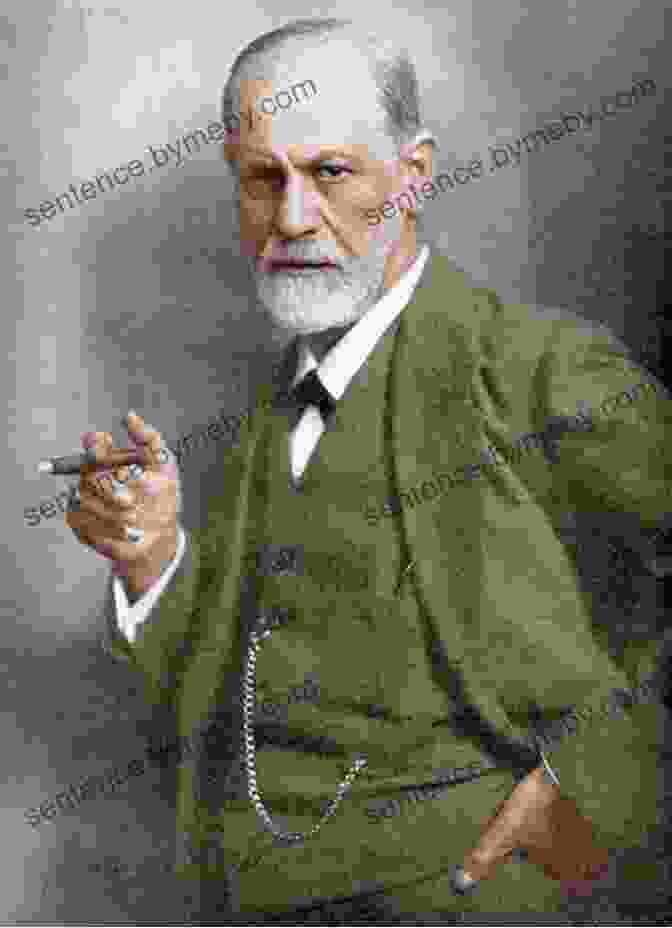 Sigmund Freud
Sigmund Freud Ingersoll Lockwood
Ingersoll Lockwood Henry Kuttner
Henry Kuttner Jim Aspinwall
Jim Aspinwall Ian Sample
Ian Sample Jack Porter
Jack Porter Howard Thurston
Howard Thurston Holly Homer
Holly Homer Pass Your Class
Pass Your Class Helene Cixous
Helene Cixous Iain Sinclair
Iain Sinclair Heike Oevermann
Heike Oevermann Terry Frei
Terry Frei Heather Balogh Rochfort
Heather Balogh Rochfort Hiro Fujiwara
Hiro Fujiwara Hazel Holmes
Hazel Holmes Henry Kaufman
Henry Kaufman Mei Ling Hopgood
Mei Ling Hopgood
Light bulbAdvertise smarter! Our strategic ad space ensures maximum exposure. Reserve your spot today!

 Kurt VonnegutUnveiling the Impact and Cost of Alternative Market and Supply Processes: A...
Kurt VonnegutUnveiling the Impact and Cost of Alternative Market and Supply Processes: A... Jorge Luis BorgesFollow ·18.3k
Jorge Luis BorgesFollow ·18.3k Calvin FisherFollow ·16.6k
Calvin FisherFollow ·16.6k Douglas PowellFollow ·8.6k
Douglas PowellFollow ·8.6k Corey HayesFollow ·10.3k
Corey HayesFollow ·10.3k Ernesto SabatoFollow ·18.3k
Ernesto SabatoFollow ·18.3k Victor HugoFollow ·10.7k
Victor HugoFollow ·10.7k Nick TurnerFollow ·10.4k
Nick TurnerFollow ·10.4k Jacob FosterFollow ·2.9k
Jacob FosterFollow ·2.9k

 Bo Cox
Bo CoxUncover the Enchanting Pearl of the Arabian Gulf: Insight...
Escape to the opulent...

 Michael Crichton
Michael CrichtonInsight Guides Pocket Baku Travel Guide Ebook: Your...
An Enchanting Journey...

 Eugene Scott
Eugene ScottLearn to Paint Scenic Scenes: Unveil the Secrets of...
Step into the...
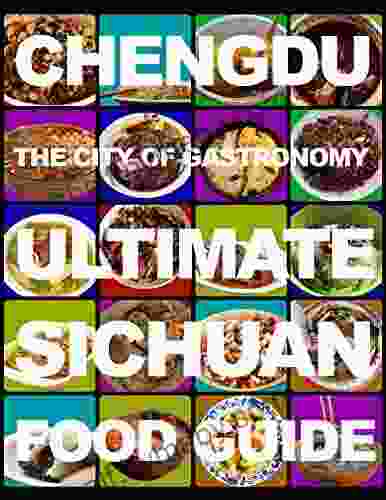
 Benji Powell
Benji PowellEmbark on a Culinary Adventure with "The Ultimate Sichuan...
Sichuan cuisine,...

 Finn Cox
Finn CoxDiscover the Enchanting World of Art Nouveau: A...
Immerse yourself in the captivating beauty...

 Corey Green
Corey GreenUncover the Vibrant World of Guatemalan Chicken Buses: An...
Step into a world of vibrant colors,...
4.2 out of 5
| Language | : | English |
| File size | : | 2109 KB |
| Text-to-Speech | : | Enabled |
| Screen Reader | : | Supported |
| Enhanced typesetting | : | Enabled |
| Word Wise | : | Enabled |
| Print length | : | 29 pages |
| Lending | : | Enabled |


